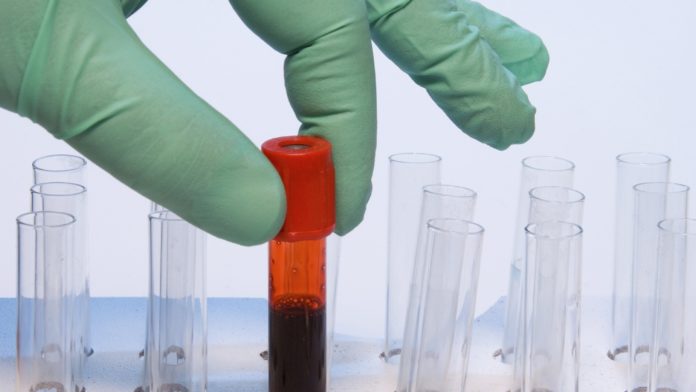
High levels of calcium in blood, a condition known as hypercalcemia, can be used by doctors as an early indication of certain types of cancer, according to a study by researchers from the universities of Bristol and Exeter in the UK.
Hypercalcemia is the most common metabolic disorder associated with cancer, occurring in 10 to 20 percent of people with cancer. While its connection to cancer is well known, this study has, for the first time, shown that often it can predate the diagnosis of cancer in primary care.
The research, published in the British Journal of Cancer, analyzed the electronic records of 54,000 patients who had elevated levels of calcium and looked at how many of them went on to receive a cancer diagnosis.
“All previous studies on hypercalcemia and cancer had been carried out with patients who had already been diagnosed with cancer; hypercalcemia was seen as a late effect of the cancer,” says Dr. Fergus Hamilton, who led the research from the Centre for Academic Primary Care at the University of Bristol.
“We wanted to look at the issue from a different perspective and find out if high calcium levels in blood could be used as an early indicator of cancer and therefore in the diagnosis of cancer,” adds Dr. Hamilton.
Gender differences in cancer risk related to hypercalcemia
The team found that in men, even mild hypercalcemia (2.6-2.8 mmol l-1) conferred a risk of cancer in one year of 11.5 percent. If the calcium was above 2.8 mmol l-1, the risk increased to 28 percent. In women, the risks were much less, with the corresponding figures being 4.1 percent and 8.7 percent.
In men, 81 percent of the cancer associated with hypercalcemia was caused by lung, prostate, myeloma, colorectal and other haematological cancers. In women with hypercalcemia, cancer was much less common.
“We were surprised by the gender difference,” says Dr. Hamilton. “There are a number of possible explanations for this but we think it might be because women are much more likely to have hyperthyroidism, another cause of hypercalcemia. Men rarely get this condition, so their hypercalcemia is more likely to be due to cancer.”
While further research is needed to replicate their results, the team hopes these findings could pave the way for the development of a simple blood test that could accurately predict cancer risk.
Advances in cancer detection
Researchers are increasingly looking for cancer biomarkers in the blood to develop such tests, which would offer significant improvements over current screening methods — many of which are invasive and cost-prohibitive — and may improve early detection and diagnosis. While catching cancer early doesn’t always guarantee a good outcome, it greatly increases the chances of long-term survival — even for cancers with low overall survival rates.
In June, researchers from the University College London announced that they’ve developed a new blood test that can predict a woman’s risk of breast cancer years in advance, even if she doesn’t have an inherited genetic mutation. While we already have tests that can identify women with an inherited genetic mutation associated with breast cancer risk (like BRCA1/2), the new blood test can detect other genetic risk factors, besides mutations, that predict the development of cancer five to twelve years in advance.
In another fascinating study – published in July in the Journal of the Federation of American Societies for Experimental Biology – researchers described a promising new approach to identifying all forms of cancer with one simple blood test. Using a technique called the Lymphocyte Genome Sensitivity (LGS) test, the scientists investigated the effect of ultraviolet light on the DNA of cancer patients and found significant differences in UV-related damage to the white blood cells of healthy subjects compared to cancer patients.
The team behind that study said the LGS test has great potential as a diagnostic tool in the future, possibly allowing doctors to rule out cancer without using costly and possibly unnecessary invasive procedures such as biopsies. It could also open the door for the use of routine cancer-detecting blood tests in the future — a move that would undoubtedly save countless lives.
